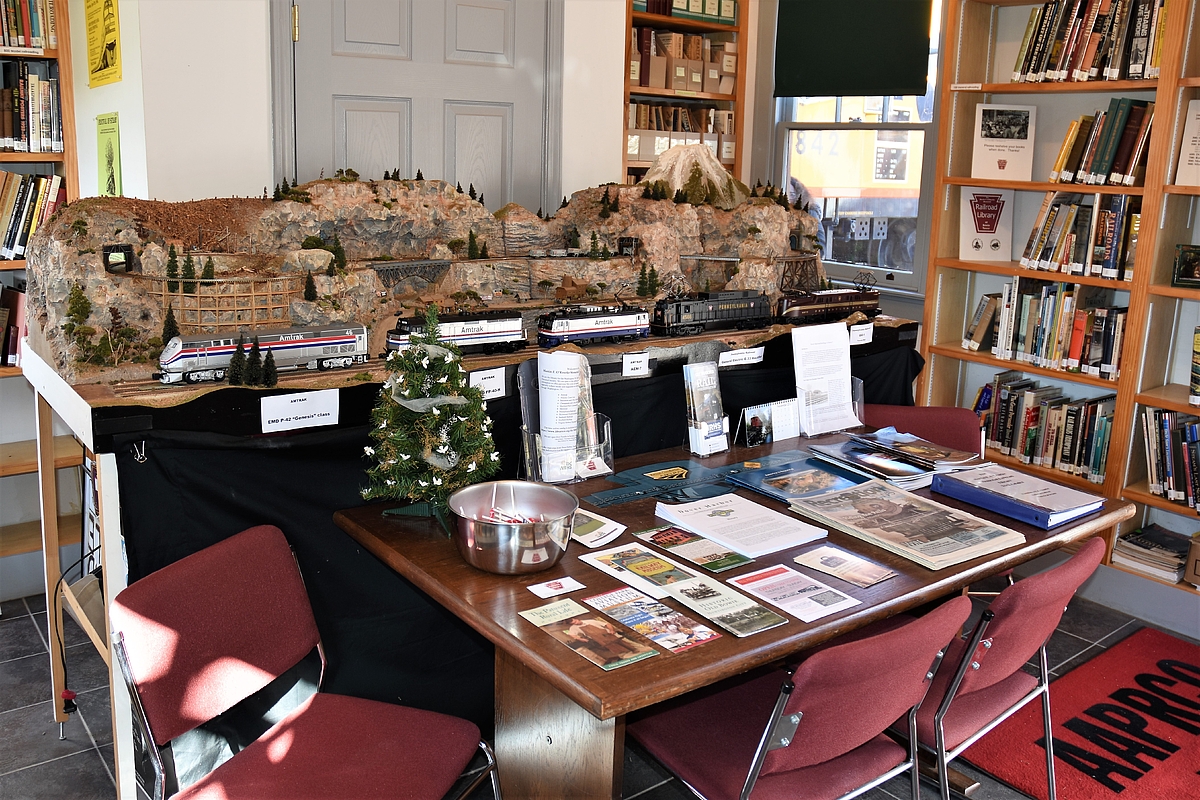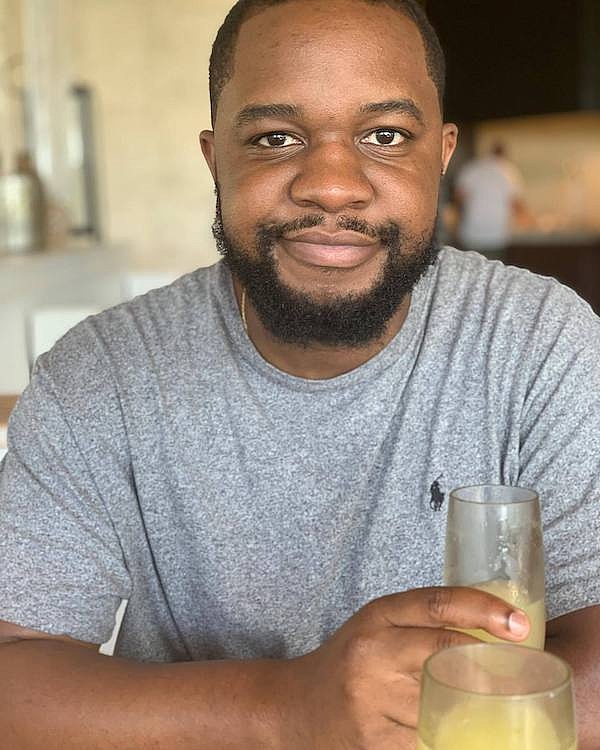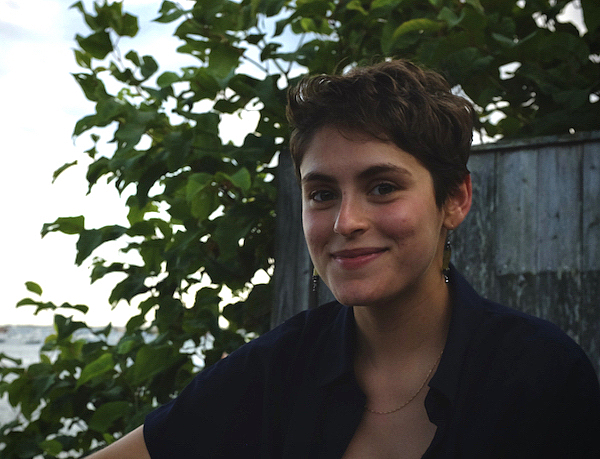LibraryThing is pleased to sit down this month with author and journalist Rebecca Renner, a National Geographic contributor whose work has also appeared in such publications as The New York Times, Outside Magazine, Tin House, The Paris Review, The Guardian, The Washington Post, The Atlantic, and others. A former high school English teacher, she earned an MFA in fiction writing from Stetson University, but will make her book debut next month with Gator Country: Deception, Danger, and Alligators in the Everglades, a nonfiction look at the world of Florida alligator poaching to be published by Flatiron Books.
Set in the Florida Everglades, Gator Country follows the exploits of a Florida Fish and Wildlife officer, as he goes undercover to infiltrate the world of alligator poachers. How did you discover this story and what drew you to it? Did you meet Jeff Babauta first, or did you come across him in the course of researching the broader topic?
The first time I heard the story of Operation Alligator Thief, it came to me as a rumor from one of my high school students. He and I had already been talking about poaching, storytelling, and thornier questions like, “Who owns nature? Is it right for anyone to make that claim?” When this student told me about Operation Alligator Thief, the rumors had blown some facts of the case out of proportion while entirely underplaying others. He described the undercover officer as a shapeshifter who had created a fake alligator farm to catch poachers, like a trap out of a movie. In other words, it all sounded too bizarre to be true. Yet, as Floridians, my student and I knew better: here, the truth is often stranger than fiction.
Wanting to know what really happened, we asked around about the story, but neither of us could find a trace of the officer behind it all. He had disappeared before the sting began, and no one without inside information could find him. In my journalism career, I’ve found that challenges, rather than discouraging me, compel me to try harder, to look deeper. So no matter how many challenges I faced with this story, I could never quite let it go. A few years later, after I had quit teaching to write full-time, a former intelligence operative helped me track Jeff down, and I talked to him on the phone several times before he opened up enough to really tell me his story. It’s almost funny to look back on the days when Jeff didn’t trust me yet, because now he’ll text me out of the blue like it’s no big deal—because it isn’t! That’s fresh in my mind, because he texted me right before I sat down to do this interview.
What makes the Everglades such a special place, and what role does this ecosystem play in your story? If you were writing a tourism brochure for the region, what would you say to emphasize its appeal?
There’s a category of natural landscape that elicits such an automatic reaction of awe that it feels like there’s something more primordial at work than merely a reaction to our own smallness in comparison to their magnitude. Think the Grand Canyon or the magnificent redwoods of the Pacific Northwest. A subcategory of these awe-inspiring landscapes are the ones that don’t really translate to the internet, that pictures seldom do justice, the ones you have to see to believe. The Everglades is one of these places to the point where you can tell when someone has been to the Everglades and taken time to sit and witness them. People who haven’t think that the Everglades are just a swamp or just an infinite landscape of grass and not much else. But people who have experienced the Everglades speak of them with reverence. They are one of nature’s cathedrals, home to myriad ecosystems as varied as the freshwater sloughs and marl prairies you might picture when you think of the Everglades, to hardwood hammocks and cypress domes bristling with orchids and head-high ferns like something out of Jurassic Park. And that’s just the beginning.
The ecosystems in which the story plays out serve as more than backdrops. Among many things, they reminded me of what we have to lose when we choose consumerism over the wellbeing of the planet and of ourselves. In my own part of the narrative, my experience in the landscape of the Everglades led me to an epiphany about the ecosystems I grew up in a little north of there in Central Florida. Similarly, the landscape acted as motivation for Jeff. Many people act like saving nature is a lost cause, and I think part of that is because they don’t spend enough time in nature to realize it’s still there. So there are several scenes in the book when Jeff is standing in awe of the natural world around him, and that helps him remember why he’s doing the difficult things he has to do to complete his mission: If we lose nature, we don’t just lose a habitat. We don’t just lose a playground. We lose a part of ourselves.
In this same vein, I got really lucky with the guy, John Pirhalla, who is the main narrator of the audiobook for Gator Country. While I was still writing the book, I was pulling to do the narration myself. In the past, narrators haven’t done my long-form journalism justice. They have missed not only the appropriate cadence of my words, but I have also felt like the heart in my descriptions has disappeared. I was adamant about not letting that happen with Gator Country, and I didn’t have high hopes for a narrator until I listened to John’s audition. I was mesmerized. I listened to several minutes of that recording, on the edge of my seat, as if I didn’t know exactly what was about to happen. He had the cadence of my words right. He pronounced even the weirdest place names correctly. But most of all, it was the sense of awe that came through in his voice that gripped me and didn’t let me go. I was not surprised, when I finally talked to John on the phone, to hear that he had paddled the Everglades Wilderness Waterway, that he and his wife are avid birders. The Everglades had caught hold of his heart, just like they had for me, just like they had for Jeff. The Everglades has a kind of magnetism: once you fall in love with the glades, it’s part of you forever. You will be drawn back to the place and to the other people who have fallen in love, too.
Alligators (and other crocodilians!) often have a strange fascination for us—part fear, part attraction. Why are they an important species, and are there things people get wrong about them? What is the most interesting thing you learned about them, in the course of your research?
Most people already know or at least aren’t surprised by the fact that alligators are apex predators. But most animals play multiple roles in their ecosystems. Alligators are no exception. They are also ecosystem engineers, meaning that the ways they modify the ecosystem for their own use also benefit other creatures. The holes they dig can become dens or nests for smaller animals. Even by digging and sliding in the mud, alligators can distribute nutrients to surrounding plants, benefitting stationary flora and helping whole ecosystems to thrive. By the same measure, they’re a keystone species. Their nesting activity helps create peat, a carbon sink, among other things. They may even be a sentinel species, animals who indicate the wellbeing of a habitat (and its safety for humans), as their populations are so sensitive to the effects of temperature and sea-level rise. I’m constantly learning new things about alligators, and I wrote a book about them, so it’s safe to say that most people don’t realize how important they are to their ecosystems.
But the most important thing most people seem to get wrong about alligators is how intelligent they are and the depth and breadth of emotion they seem to express. While researching this book, I have seen alligators forge bonds with humans that go so far beyond what you would expect. To me, alligators are fascinating in part because they are so mysterious. For many of us, our cultures have conditioned us to see alligators as terrifying beasts, mythic monsters made mundane by modernity. (Bonus points for accidental alliteration!) But they’re neither. They’re cousins to birds, and perhaps just as intelligent. The largest alligators alive today could be 60 to 70 years old, meaning that they have survived since their species was considered endangered. There is still so much we don’t know about them. Yet the more we learn, the more we understand about their ecosystems and our world as a whole.
That’s a big difference from the animal that’s a subject of zany memes. However, I’ve also learned that we can’t discount the impact of those memes. And I’m not just saying that because the guy who runs the Gators Daily twitter account helped me research part of this book. Recent studies have shown that memes about “unappealing” species positively impact the awareness of and engagement with conservation efforts concerning those species. So I guess the takeaway here is, if you love something, make it a meme? Or in my case, a book that is sometimes funny. That’s one last thing I learned while writing this book: Alligators sure do make humans act silly.
Although the natural world is a key element of your book, the human interaction with that world is also an essential part of the story. One reviewer noted that your book offers an exploration of the ”blurry lines” between poachers and conservationists. What are some of your takeaways, when it comes to the human story of alligator poaching? Were there things you learned which surprised you, or which you found particularly interesting or moving?
I went into this book with a view of poachers that I quickly found did not align with reality. When I pictured poachers, I thought of big game hunters gunning down endangered rhinos. But it turns out that’s not what the typical poacher looks like, and hurting nature is seldom their motivation. While big-game poaching and larger organized smuggling rings do exist and are a big problem, most poachers are either the bottom rungs of larger operations or not part of an organization at all, and they’re breaking the law on accident (more common than I thought, for sure) or to make ends meet using the skills they know best. They know more about nature than most people, and they might even engage in wilderness upkeep activities that they might not even realize fall under the umbrella of conservation. This is true of one of the “mysteries” I investigated down in the Everglades, so I won’t spoil it for you by getting specific. Let’s just say even I was shocked when I came to this particular realization.
When it comes to the human story of alligator conservation, I realized that when outsiders talk about poaching, the poachers often become scapegoats for problems that have affected them rather than ones they’ve created. Habitat loss at the hands of construction—of housing developments, of commercial areas, and even of roadways—has had far more impact on alligator populations than poaching ever could. Some people get mad when I say this, thinking I’m defending crime. The reality is that I’m a stickler for the truth. The raw numbers, the statistics here, are what made me come to this conclusion. In fact, the statistics challenged the beliefs I held when I started researching this story. I’m not even a hunter. I’m just a perennial questioner of authority.
This realization has made me question my perspective and the previous conclusions I’ve read about conservation that I’ve assumed to be true. Now, whenever I see someone blaming hunting as the reason for the downturn of a species, I question it. Sometimes hunting is indeed to blame, but it’s seldom the whole story. Even in the case of the American bison, which many of us have been taught were slaughtered by colonialist powers (which is true), the downturn of the species also happened in part because of bovine diseases that jumped from cattle introduced to the plains by American ranchers. Knowing the whole story doesn’t excuse our impact on nature, and in the cases of the bison and the alligator, the cultures that depend upon those animals. Instead, I believe that when we reveal these nuances, we can gain a new understanding of who controlled the original narrative, why they blamed who they blamed, and what they had to gain from that. It might be different for every animal, but I see some similarities. In the case of the American alligator, deflecting blame for their downturn onto illegal hunting meant that other activities that put pressure on the species, namely construction, could continue unchecked. People who paved, drove through, and lived in the alligator’s habitat would have someone else to blame while being able to ignore their own impact on nature, and the even greater influence wielded by powers such as corporations who benefitted from nature’s destruction.
You are a prolific journalist, publishing numerous shorter pieces in National Geographic and many other publications. Gator Country is your first book-length work to be released. Were there challenges, or things you particularly enjoyed about writing a longer work, compared to some of your shorter pieces?
This is silly, but one of the best (and worst!) things about shorter-form journalism is the more-or-less instant feedback you get on it, first from your editor then from your readers. I’ve had several stories go viral, and that has been scary and exciting, but I think it also conditioned me to want instant praise (or criticism) for my work. The more I think about this, the more I feel like that desire for instant feedback may not be for praise but for human interaction.
Writing, no matter the genre, is a solitary endeavor. As a very young writer, I wrote novels and posted chapters on the internet for friends to read. My best friends in high school, who I thank in my acknowledgements, were avid readers of my work long before it was any good. Writing has always been my main form of self expression and the way I interacted with the world. So, in writing something longer, I had to find a way to keep going without the instant feedback that comes with shorter publication cycles. Luckily, my editor and my agent stepped into these roles so I wouldn’t feel like I was writing into the void. I’m truly indebted to them for that, especially because I wrote this book during the pandemic when all of us were feeling isolated. Needless to say, I’m trying to be more social now, but I’m having the opposite problem. I’ve gotten too used to being alone.
Tell us about your library. What’s on your own shelves?
My shelves are extremely varied. I started off my writing life as a fiction writer. I wrote my first book, a fantasy novel, when I was 15; and no, it’s never going to see the light of day. I always wanted to be a novelist, and I’d written five (I think?) in my teens and 20s I won’t even show to my agent. That doesn’t include a fantasy novel that I’ve written and scrapped several times. I started writing it when I was 19, and now that I’m finally a good enough writer to do it justice, it has almost a decade and a half of world building and just as many years of devouring fantasy novels. These have been as varied as classics like the works of C.S. Lewis and Ursula K. Le Guin, to sci-fi’s golden age heroes like Ray Bradbury, Douglas Adams, and Philip K. Dick, to modern superstars like Brandon Sanderson, Patrick Rothfuss, Naomi Novik, and Leigh Bardugo. I could go on and on and on.
Another big part of my library is, of course, nonfiction. When I was a teenager, I thought nonfiction was boring. Then I discovered narrative nonfiction. The very first narrative nonfiction book that I read—the one that made me realize that nonfiction could be just as engrossing and exciting as fiction—was The Poisoner’s Handbook by Deborah Blum. As I got older, I read a lot of narrative nonfiction as research for fiction. Before I knew it, I was devouring just as much nonfiction as I was fantasy. There’s a special place in my heart reserved for narrative nonfiction books about nature. It wasn’t until after college that I read one of my absolute favorites, Into Thin Air by Jon Krakauer. My dad had just died, and I was stuck in my home town and working a dead-end job, down and out in paradise, as I like to say. I remember reading how Outside Magazine had sent him to write the story that would become that book, and I thought, That’s the life I want to live. That’s what I want to do. Six years later, Outside Magazine sent me to the Everglades, and about a year after that, I sold Gator Country. Between those two bookends, I read so much narrative nonfiction. Two of my favorite authors whose work I read in that time are David Grann and Susan Orlean, so I was blown away that my publisher (without me saying so!) chose to compare my book to their work. I guess when you’re a writer, you are what you read.
I also like to read literary fiction, thrillers, classics, and… okay, pretty much everything. But for a while, right after college, I made myself a course of study that I would call the Art of Suspense. I read Time’s best 100 thriller and mystery books of all time and I tried to figure out the best things each of those books did and how I could use those techniques in my own writing. Some of my favorites from that were Umberto Eco’s The Name of the Rose and Donna Tartt’s The Secret History.
What have you been reading lately, and what would you recommend to other readers?
I’m one of those weird people who reads 50 books at once. Here’s a random smattering of stuff I’m either currently reading or that I’ve just finished.
I’m considering writing a book about dolphins, so I’m digging into that topic, and I’ve run into a problem: Susan Casey already wrote the perfect dolphin book, Voices in the Ocean. Honestly, this is the best kind of problem to have, because now I get to enjoy that book.
I’m also trying to figure out comps for my fantasy book, so my agent and I are doing kind of a buddy read of Babel by R.F. Kuang. While the plot isn’t much like my book, it does share a certain vibe, and the writing is spectacular. I know I’m late to the party on this one, but I definitely recommend it.
A book that I want to read that I think would pair well with Gator Country is Crossings by Ben Goldfarb. I don’t explicitly talk about road construction’s impact on wildlife in Gator Country, but that’s just fine, because Ben has it covered from every possible angle.
Okay, one last one. I’m late to this one, too, but SPQR by Mary Beard. Apparently, I’m not the only one who constantly thinks about the Roman Empire. But the thing I come back to again and again—which SPQR hasn’t mentioned yet—are the insulae, which were essentially ancient apartment buildings. They don’t sound great. They were especially prone to fire and collapse, and I wonder more frequently than I think is normal what it was like to live in one. So I’m looking forward to reading Beard’s new book, Emperor of Rome, even though it probably won’t talk about insulae.









